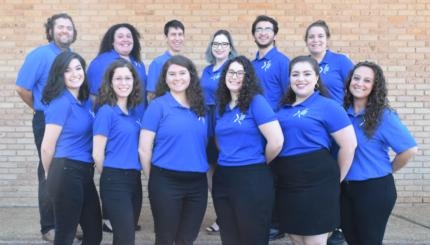When you enter rabbinical school, you get used to a couple of questions. Chief among them: What made you decide to go to rabbinical school? And what do you want to do after you get ordained? For me, those answers are actually one and the same: I want to be a military chaplain.
This has been my goal for a very long time. In fact, I am already a chaplain candidate for the US Navy, holding the rank of Ensign. By my own calculations, I am also at least the third person to work in the Institute of Southern Jewish Life’s Rabbinic Department who has some experience with military chaplaincy. To me, it is not much of a coincidence that this is the case. Neither is it a coincidence that I am interested in chaplaincy and decided to apply to work for the ISJL. Rather, it is very deliberate. Both organizations and settings mandate a similar skill set and passion, namely the ability to do work across denominations, to embrace interfaith outreach, and a true passion for serving small communities.
As a chaplain, I will be tasked with four main job responsibilities:
- PROVIDE religious ministry and support to those of our own faith.
- FACILITATE for all religious beliefs.
- CARE for all Marines, Sailors and their family and friends.
- ADVISE commanders to ensure the free exercise of religion.
I believe all of these duties can really be summed up under one larger goal: To ensure that all service members under my charge, regardless of religion, have a safe and welcoming space to pursue spiritual growth and comfort.
I will serve Reform Jews just as I will serve Conservative or Orthodox ones. And I will serve all service members, be they Jewish, Protestant, Catholic, Muslim, Buddhist, Hindu, Pagan, Atheist, or anything else. I will lead and facilitate spiritual worship, I will serve as a pastoring presence, and I will work within the military’s chain of command to do so, enforcing our nation’s proud guarantee of the free exercise of religion.
Working for the ISJL this summer, I have found myself thinking more and more about these issues and the role of the chaplain. Traveling around to the small communities I have visited, I have encountered different people of various backgrounds and life stories. But the connection I have felt with them centers around one shared experience – the fact that we are all passionate about Judaism and working to feel connected. That passion and that connection is what will serve me well in the military.
In the midst of my internship this summer, I was also honored to lead a Lunch-and-Learn session for my colleagues at the ISJL. We talked about military chaplaincy, Jews in the military, and why I find this rabbinical calling to meaningful. It was another great opportunity to connect around this service area and its importance. It inspired me to share this post, as well, and continue as many conversations as I can about the vital role of military chaplaincy.
As my summer down South comes to a close, I want to thank everyone I have met for helping strengthen my connection to Judaism and my conviction to serve as a Chaplain.
Jewish food, holidays, Torah, Shabbat, history, blogs and more in your inbox – sign up now!



